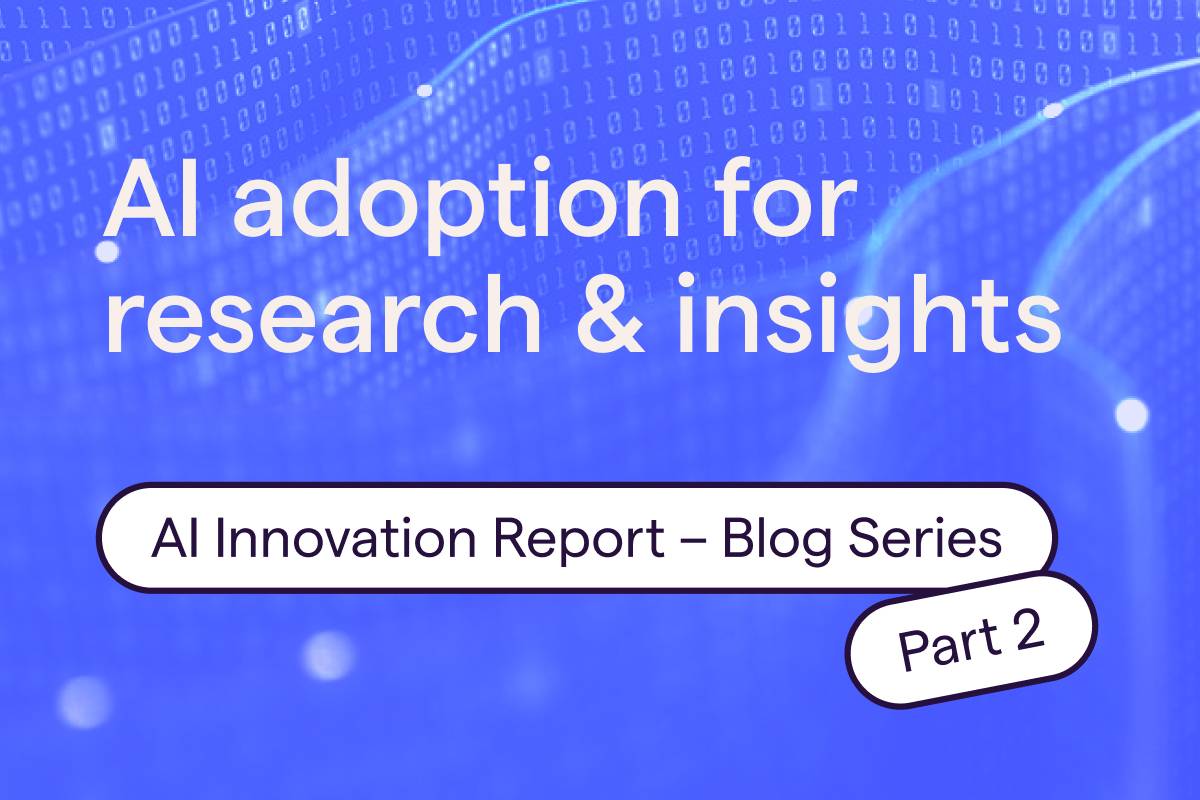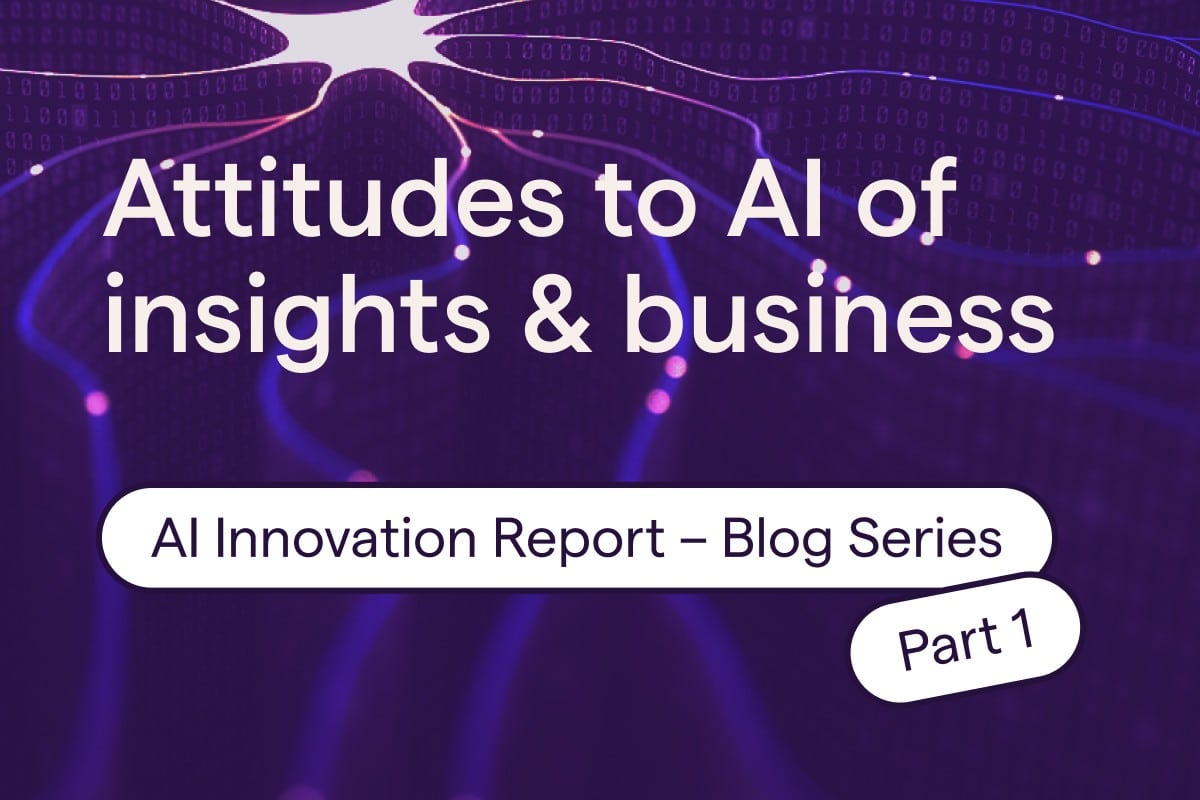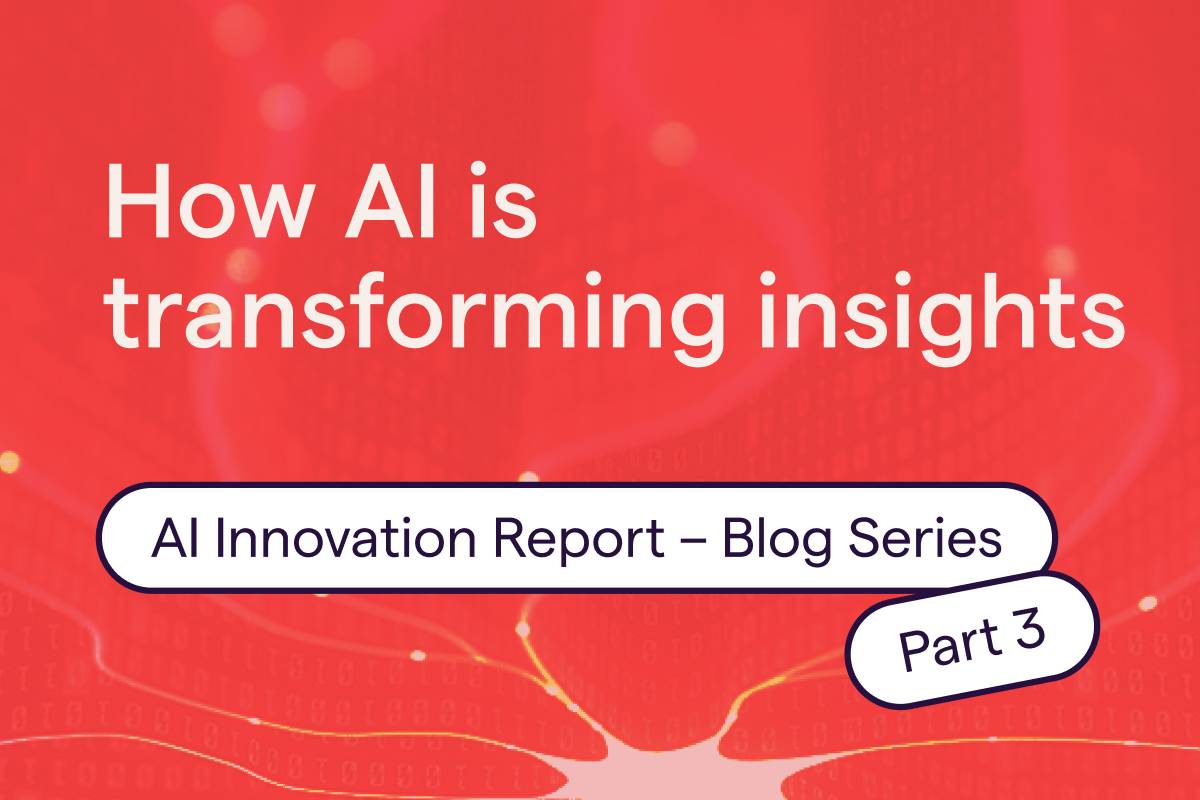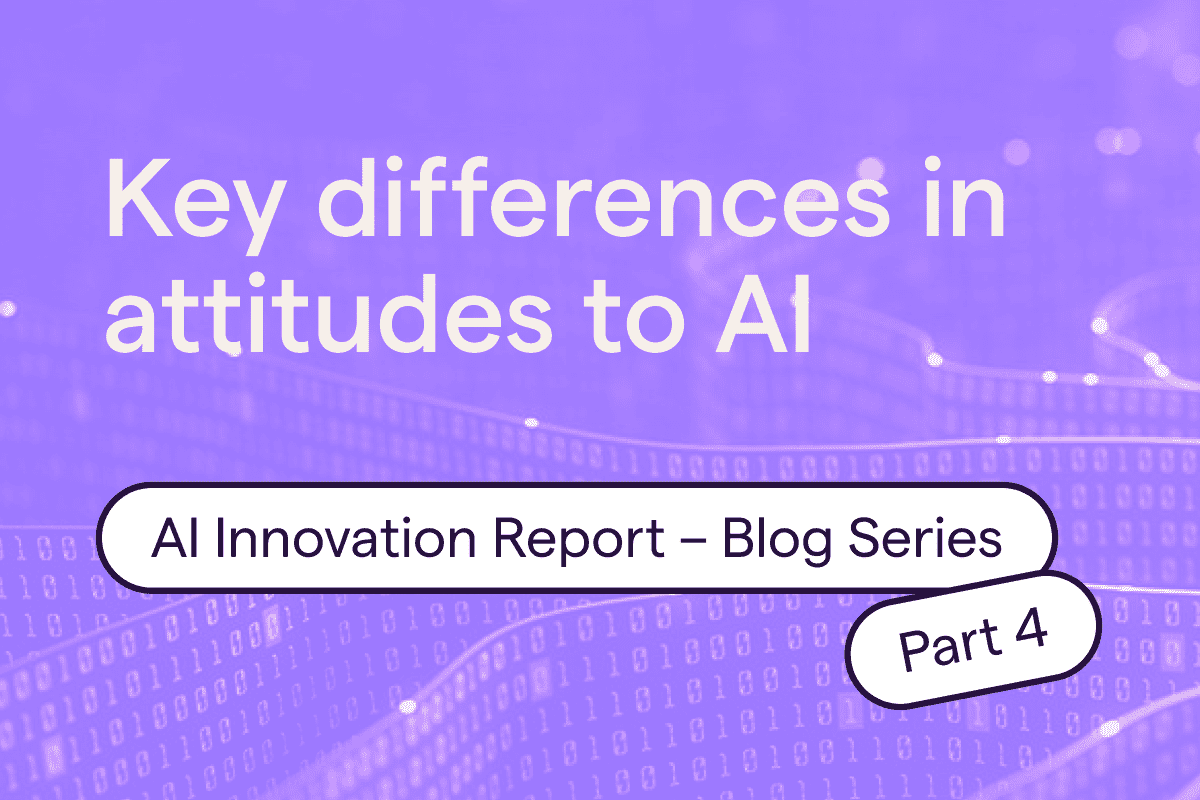Artificial Intelligence (AI) adoption is widespread, with AI permeating all aspects of modern business — and insights teams are no exception. Natural Language Processing (NLP), Large Language Models (LLMs), and Compute Vision capabilities are embedding AI into research and insights applications including text analytics, video analysis, image recognition, social media listening, and enterprise knowledge management.
These rapid technological advancements present a transformative opportunity for research and insights. But what is the rate of adoption of AI within enterprise teams, and how quickly is it happening? Which AI capabilities have the most potential for the future?
Market Logic Software commissioned a survey of over 200 enterprise insights professionals and their stakeholders to find out the rate of enterprise AI adoption for insights.
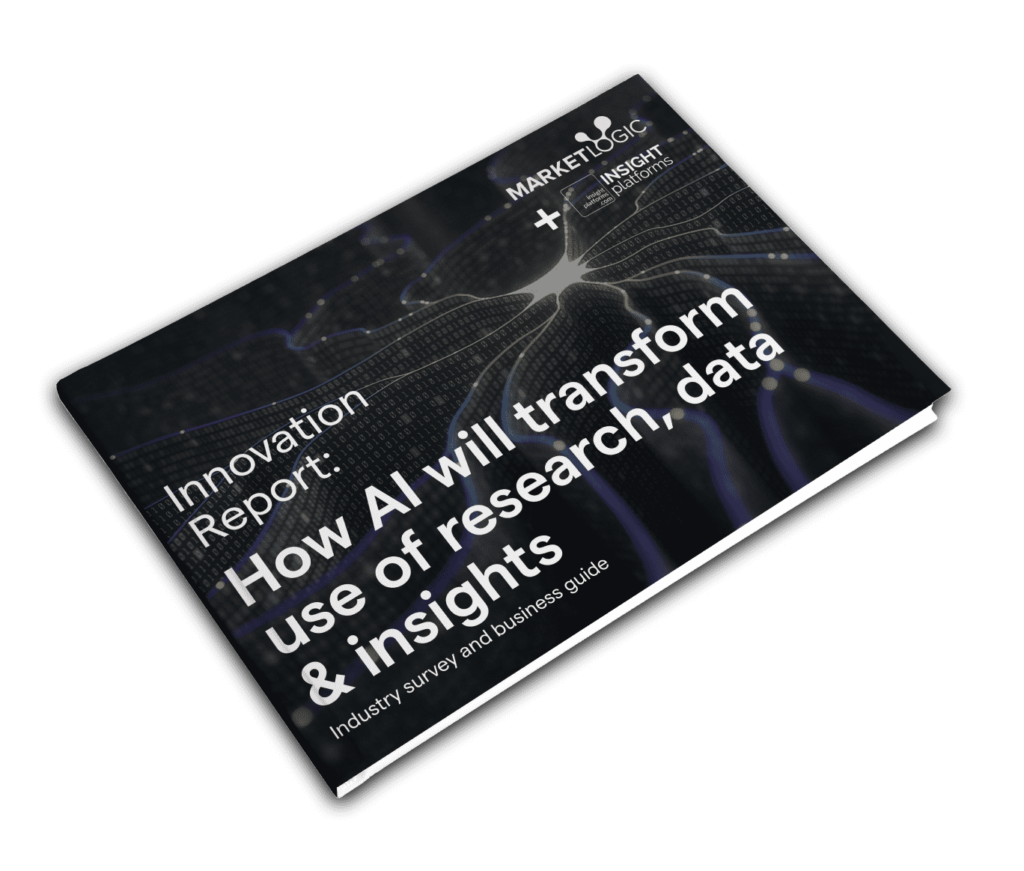
Current AI adoption in research & insights
The research shows that 77% of insights teams and 68% of stakeholders have already used AI for at least one research and insights activity, with analysis tasks the most widespread use cases: analyzing surveys and qualitative data for searching existing knowledge.

At the other end of the spectrum, administrative tasks see the lowest adoption levels for AI tools: this includes managing internal projects or agency relationships.
Adoption of AI among insights teams
Nearly 40% of insights teams currently use AI for analytical tasks, and this is forecast to grow significantly in the future. Nearly three-quarters of insights teams expect to use AI for analyzing survey data, searching existing knowledge, or analyzing qualitative research.
Advisory tasks, however, show much lower current enterprise AI adoption and lower scope for future growth. This includes communicating insights and storytelling and helping business users to interpret research and data.
Finally, administrative tasks such as managing projects, writing briefs, and managing vendors have the least current and forecast use of AI.

Stakeholder adoption of AI for research & insights tasks
The research data shows that democratization of research and insights is already widespread, and that adoption of AI will further accelerate this trend.
Stakeholders currently undertake a wide range of research and insights tasks themselves:

Many stakeholders are already using AI tools to assist in these tasks, with analysis activities again being the most commonplace:
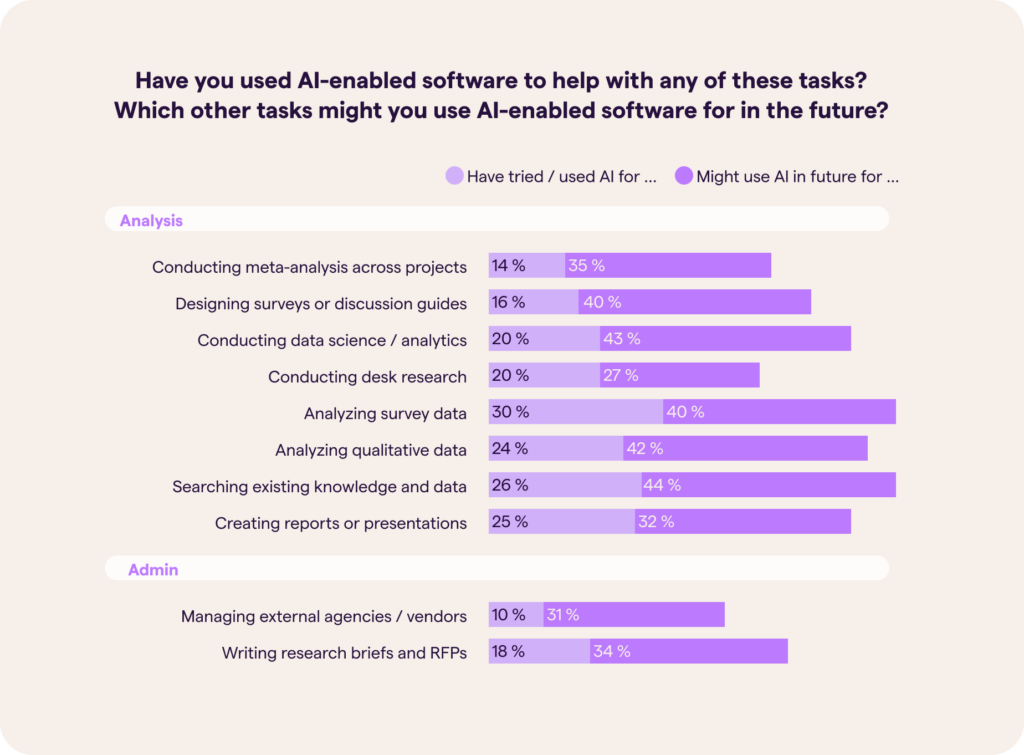
What AI means for insights leaders
Enterprise AI adoption presents opportunities and challenges for insights leaders, both within insights teams and by stakeholders.
Insights teams will reap the benefit of significant time savings on data analysis tasks. Additionally, stakeholders will be able to conduct more of their own research and insights activities with the adoption of AI-based tools.
Both of these developments will free up time within insights teams. How will this extra capacity be deployed?
In the future, insights team members should be able to provide more advisory and consultative services: activating AI-powered insights, coaching business users, and delivering a more strategic perspective.
The data from this study strongly supports the need for this shift. Stakeholders predict that AI for research will increase their organization’s overall demand for research and data-driven insights or market insights; and that their need for expert support from insights teams will grow.
Taken together, this implies a healthy future for insights professionals with the relevant skills. However, there will be challenges along the way:
- Transforming teams: This change will require investment both in training and developing existing team members and in hiring new staff with the relevant experience.
- Resisting pressure to reduce headcount: The rollout of AI for research and its associated efficiencies will inevitably create expectations of doing more with fewer people. Insights leaders will need to build a robust business case to resist this pressure and demonstrate the advisory value and impact that their teams will deliver. The data from this study may be a useful component of such a business case.
Find out more about how you can leverage knowledge more effectively to transform your business by driving AI adoption. Contact us to book a free demo.

